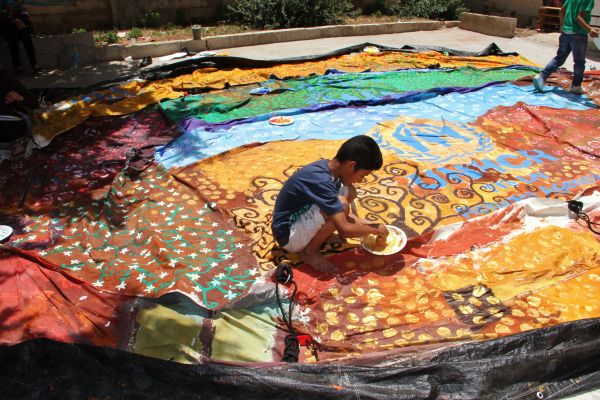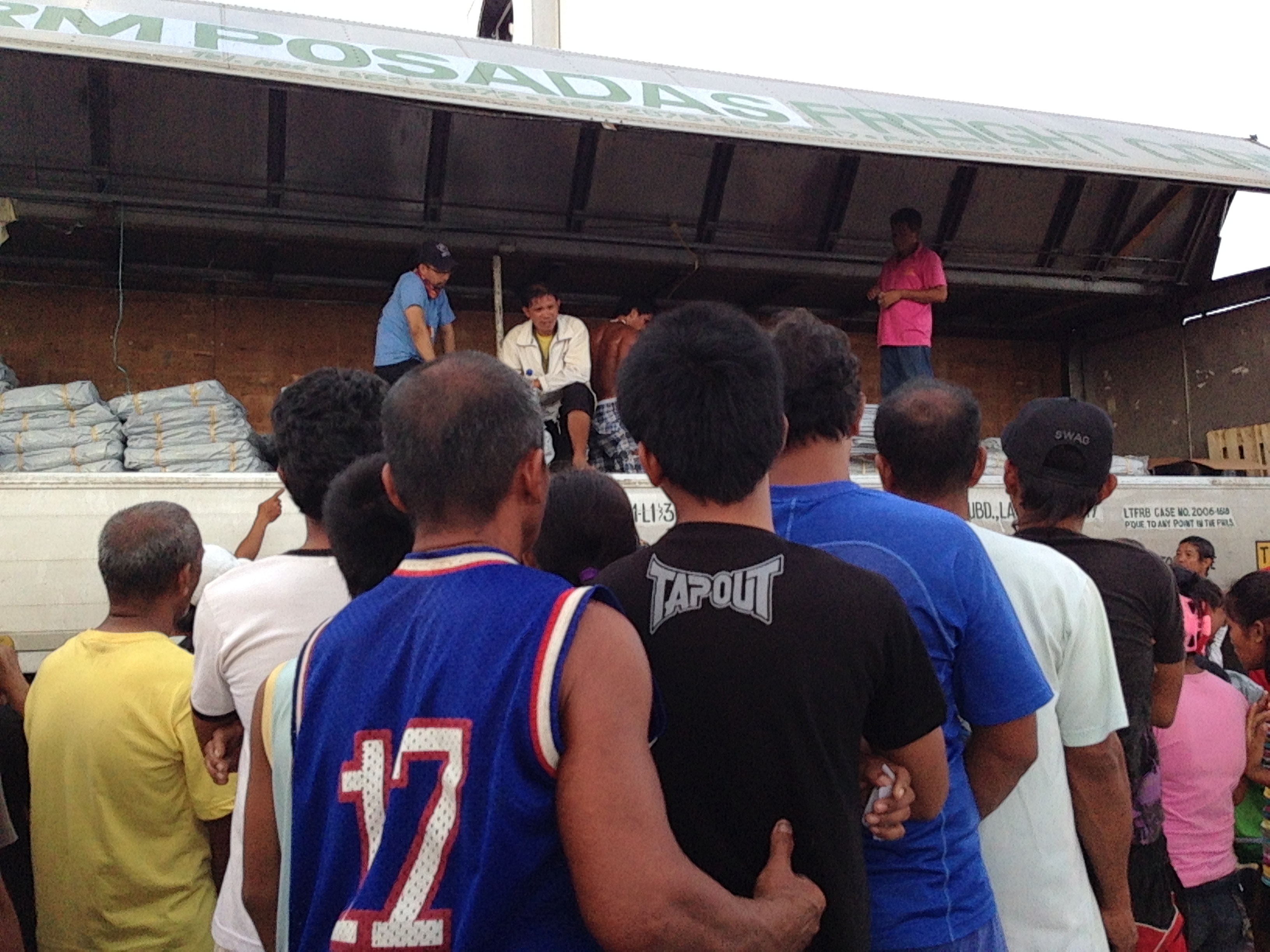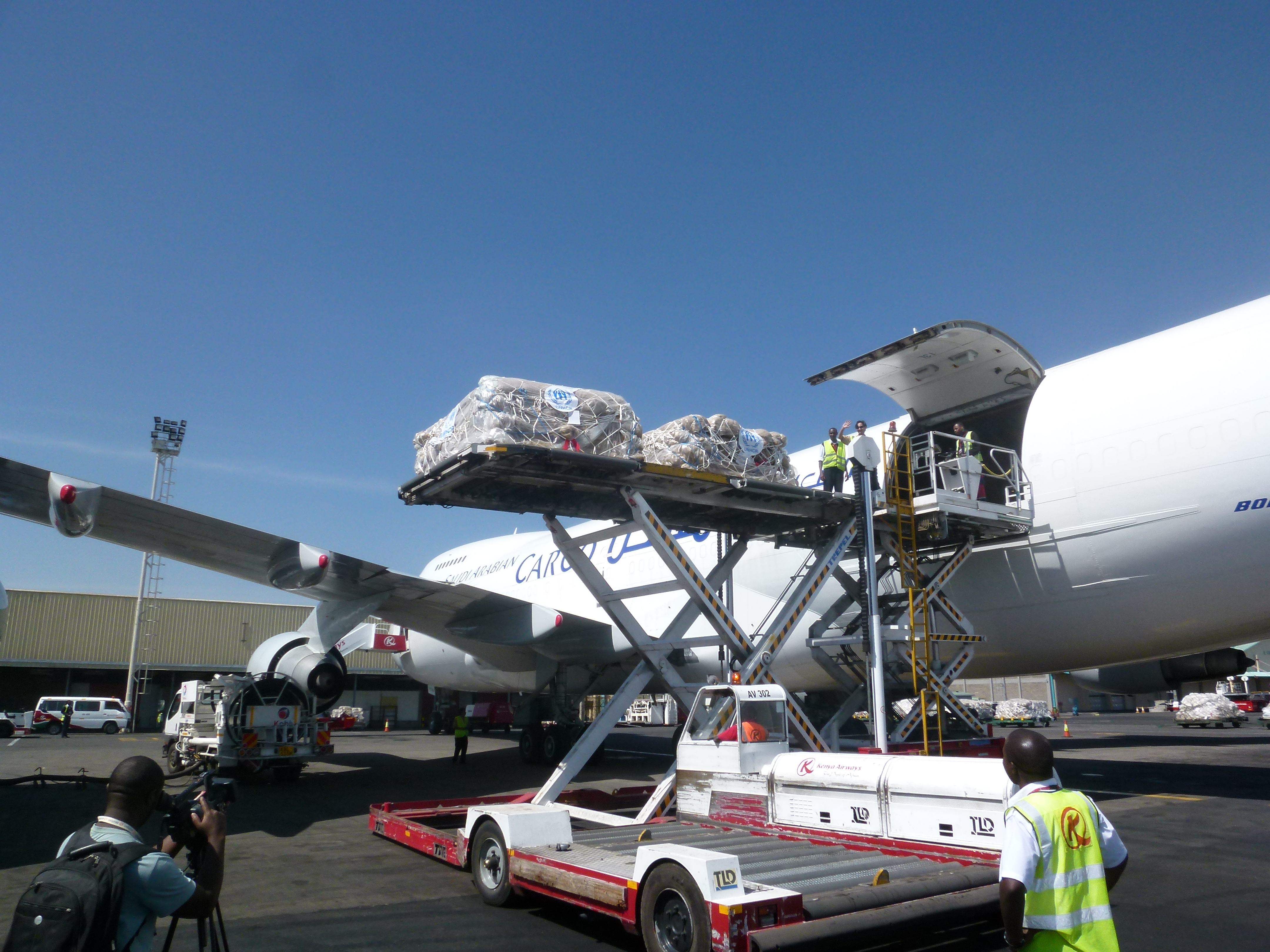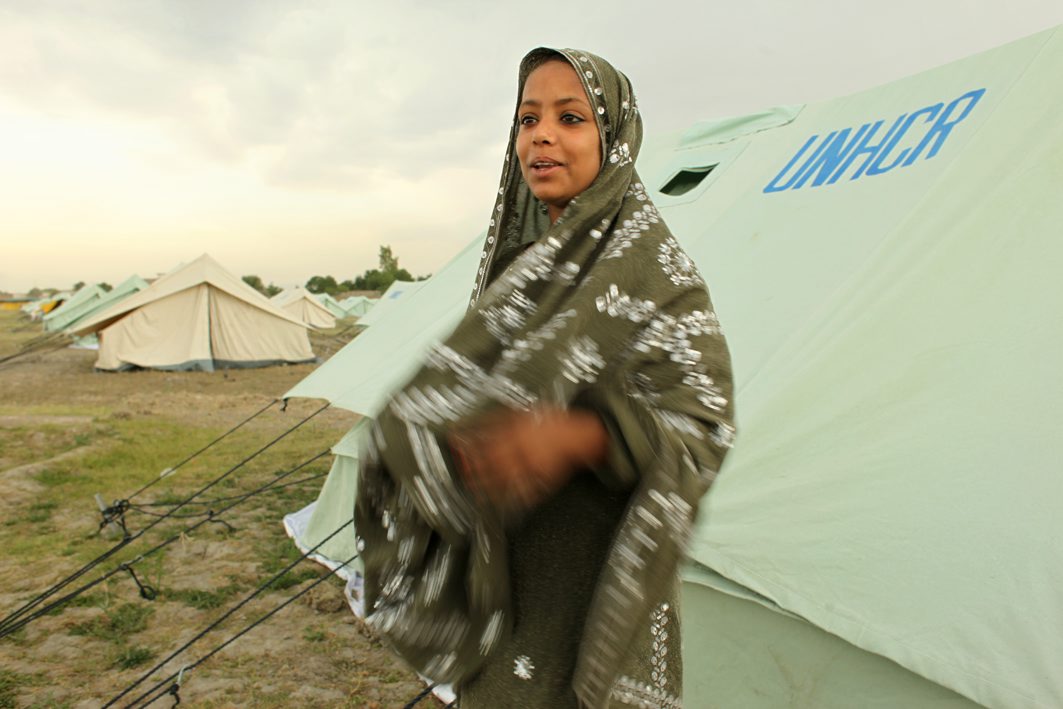Iraqi nationals in Syria seek temporary protection; Japan donates tents to UNHCR
Iraqi nationals in Syria seek temporary protection; Japan donates tents to UNHCR

AMMAN, Jordan, March 31 (UNHCR) - While few Iraqis have actually fled their country so far, an increasing number of Iraqi nationals in Syria have been approaching the UN refugee agency for temporary protection since the start of the war in Iraq. Meanwhile, UNHCR in Jordan has received humanitarian aid from Tokyo to prepare for a possible Iraqi refugee outflow in the region.
Since the conflict started on March 20, there have been no significant refugee movements from Iraq into surrounding countries. However, increasing numbers of Iraqis living in Syria have been seeking legal protection from UNHCR.
Over the last two days, more than 1,650 Iraqi nationals - a dramatic jump from the usual daily crowd of 40 to 50 - have approached UNHCR's office in the Syrian capital of Damascus to ask for a letter offering them temporary protection status. They are believed to be Iraqis who left their country prior to the current conflict, but who have now decided to formalise their status in Syria because of the war.
So far, none of them have asked for food or accommodation. All seem to be living with family or other relatives in Damascus or nearby towns, and no one has requested to be transferred to Al Hawl camp. UNHCR is looking into possible vulnerable individuals, such as elderly or handicapped persons, to see if they need any specific assistance.
Since Sunday, the refugee agency has issued more than 1,400 temporary protection letters to the Iraqi nationals approaching its office in Damascus. The letter deems them to be in need of temporary protection, and prevents them from being sent back to Iraq until it is safe enough to return.
Meanwhile, preparations continue for a possible exodus of Iraqi refugees in the region. In Syria, the government has been upgrading Al Hawl camp and preparing transit sites at border crossings from Iraq. UNHCR is also examining a possible second refugee camp in Syria at Sabaa Biar.
In Jordan, the refugee agency has received two planeloads of humanitarian aid from the Japanese government. On Monday, two Boeing 747 cargo jets piloted by crews from Japan's Self-Defense Air Force landed at Jordan's Queen Alia International Airport with 160 10-person tents, which were received by Japan's ambassador in Jordan, Koichi Obata, and UNHCR representative Sten Bronee.
"We're very pleased with the contribution of the Japanese government," said Bronee. "When the needs arise, we've always had a very positive response from the Japanese government. This comes at an important time. The crisis has only just started."
UNHCR plans to send part of the Japanese contribution to its stockpile in eastern Jordan. The Jordan Hashemite Charity Organisation, UNHCR's main partner in the country, has prepared a refugee camp in Ruwaished, some 60 km from the Iraqi border. This site can shelter up to 10,000 refugees, and can be expanded if more Iraqis arrive.
Any tents that are not immediately needed will be stored at the UNHCR stockpile in Amman. From there, they may be dispatched to Syria.
In Iran, preparations continue on four camp sites in the western provinces of Kermanshah, Khuzestan and Ilam. UNHCR has also stockpiled relief items and supplementary foods in its warehouses in Kermanshah and Ahwaz. Border monitoring is also ongoing, but no refugee crossings have been reported so far.
In Turkey, stocks of relief supplies are building up in the port city of Iskenderun. In the south, attempts by UNHCR's mobile teams to monitor the border with northern Iraq have been hampered by bad weather and clearance problems.
On the funding front, UNHCR has so far received $31.6 million from donor countries for its preparation efforts in the region.








